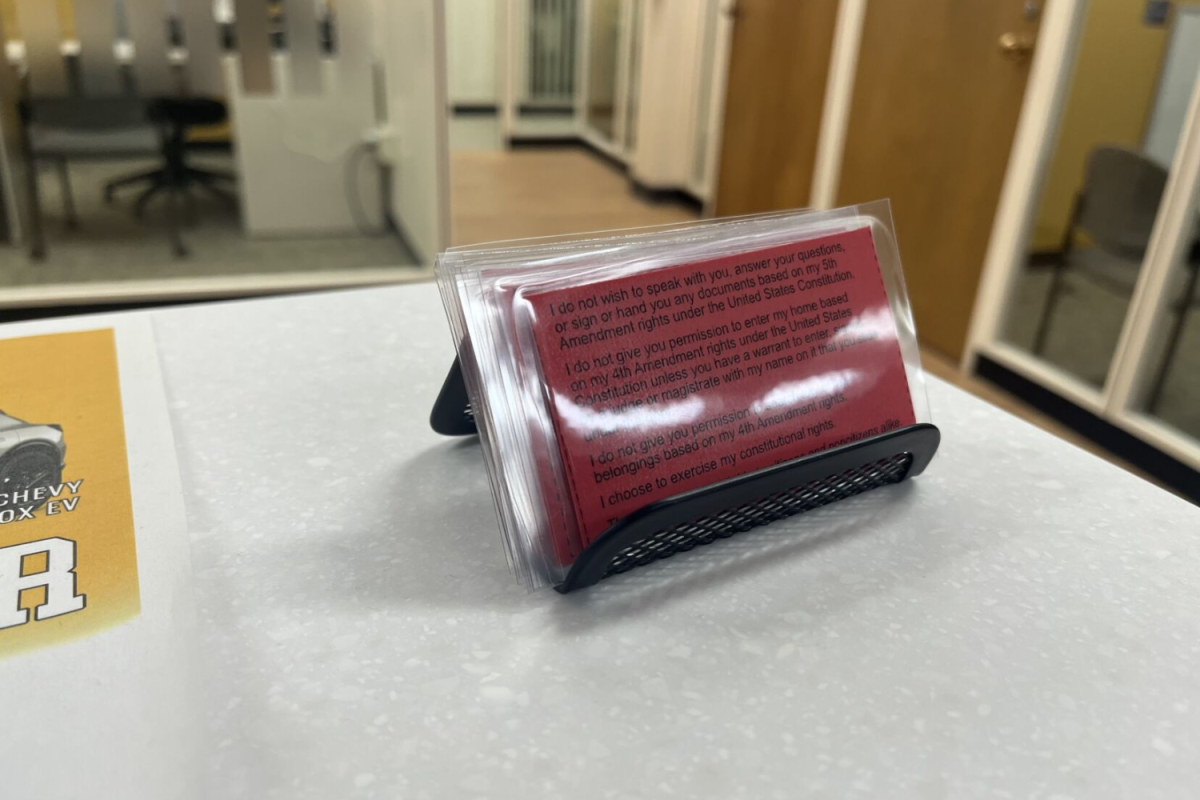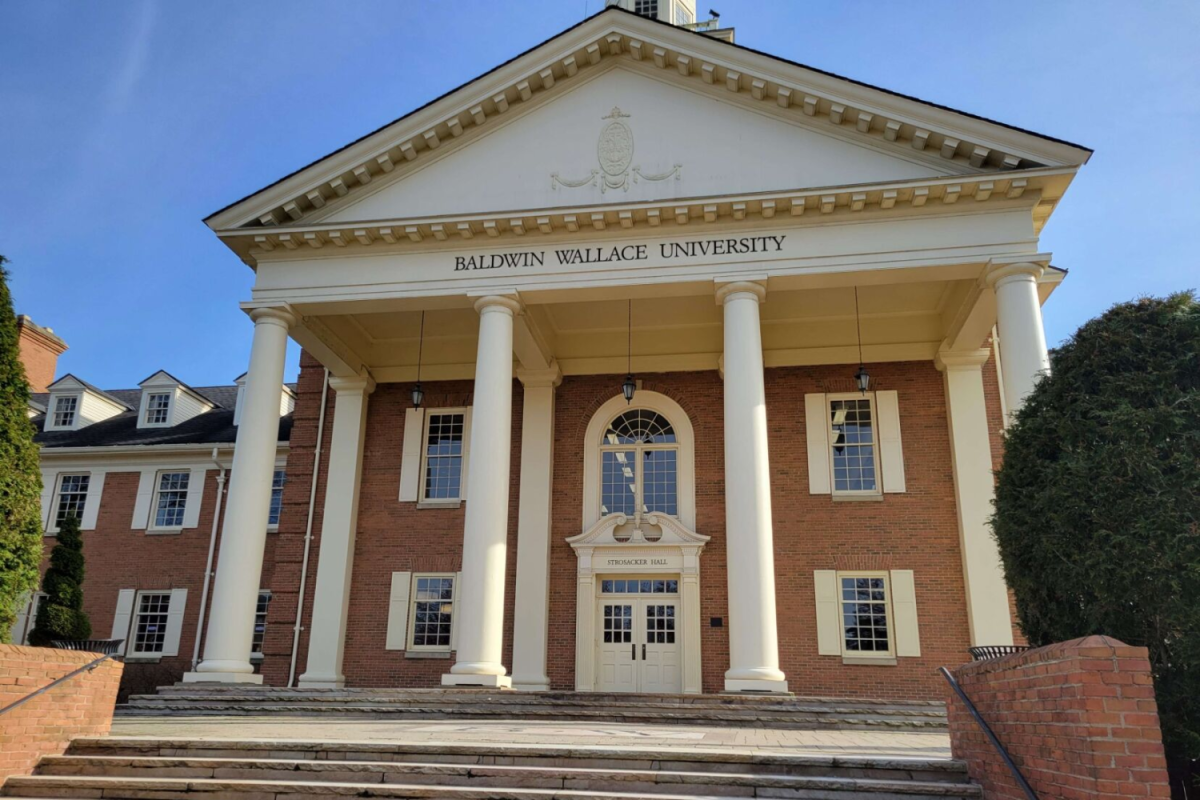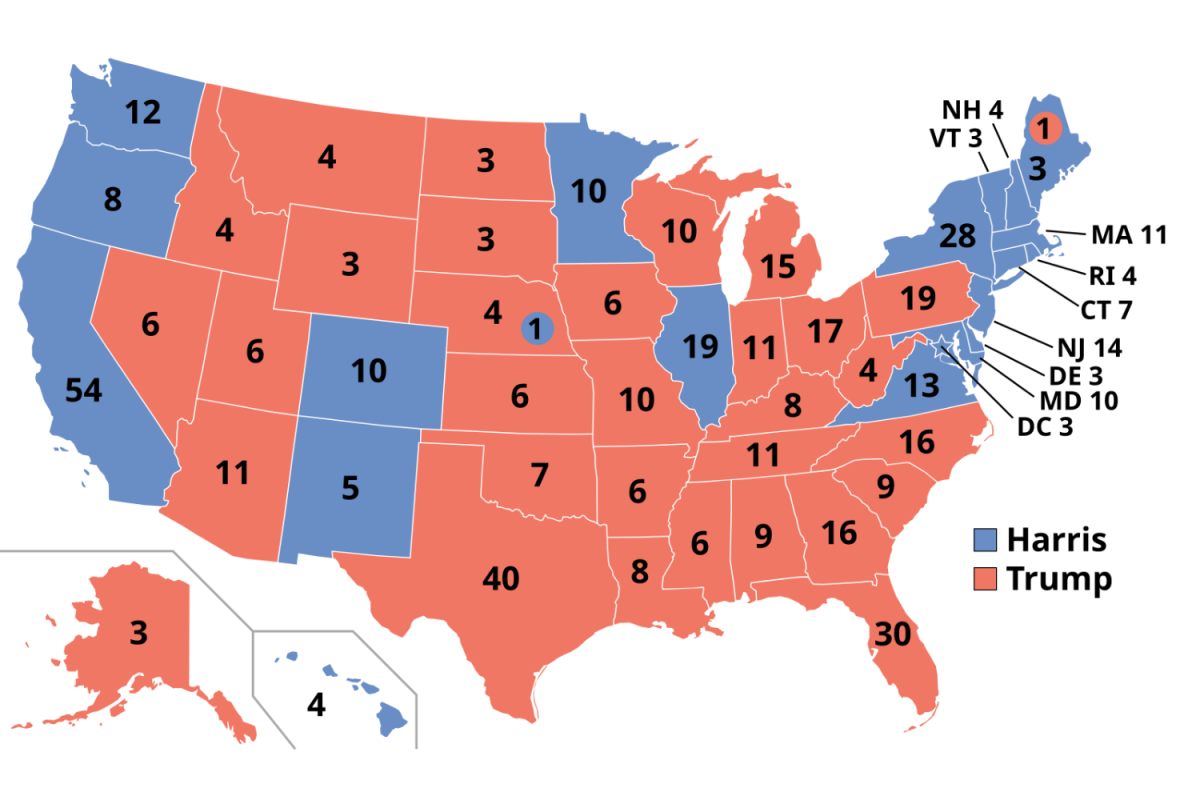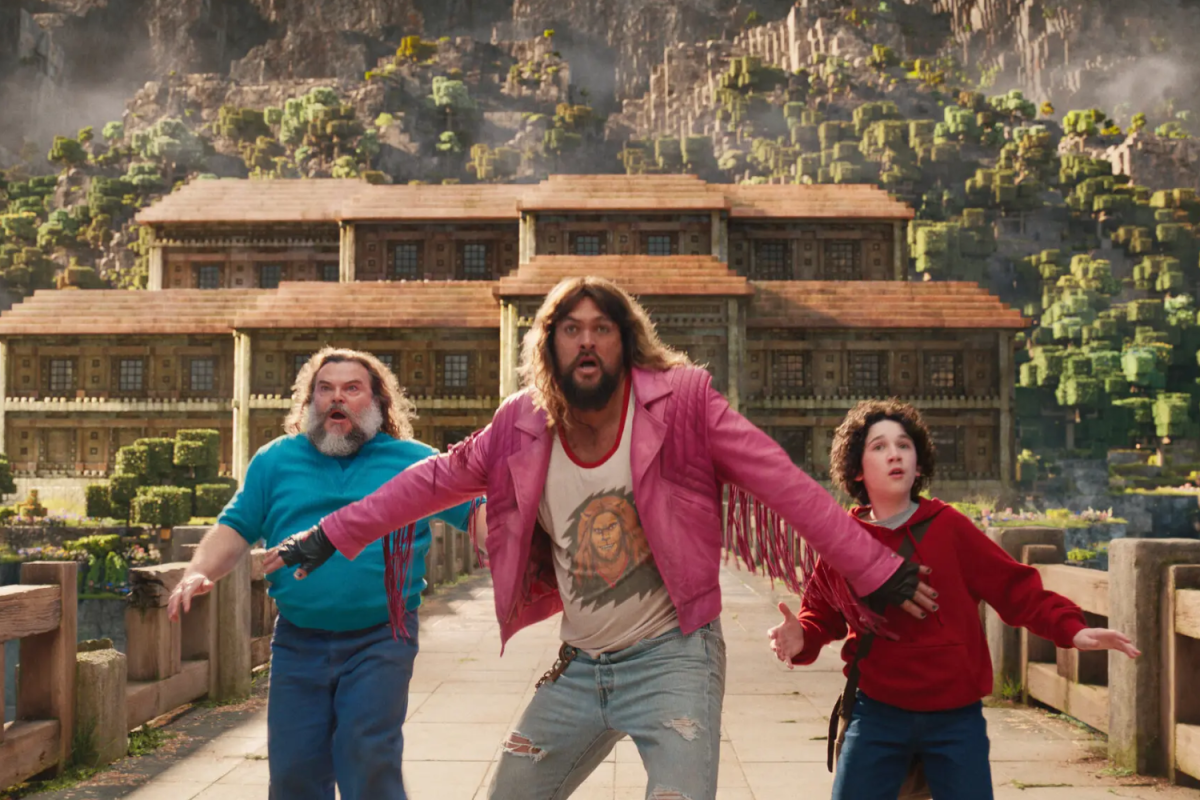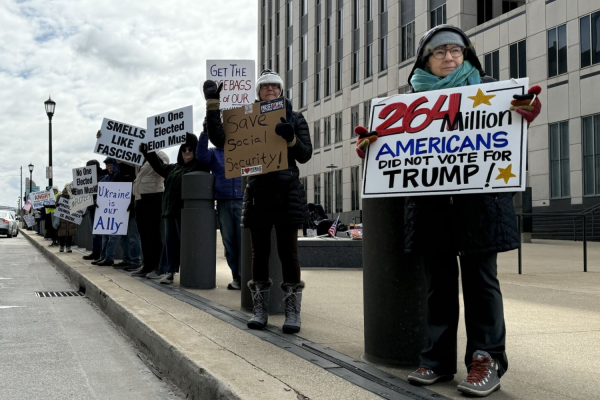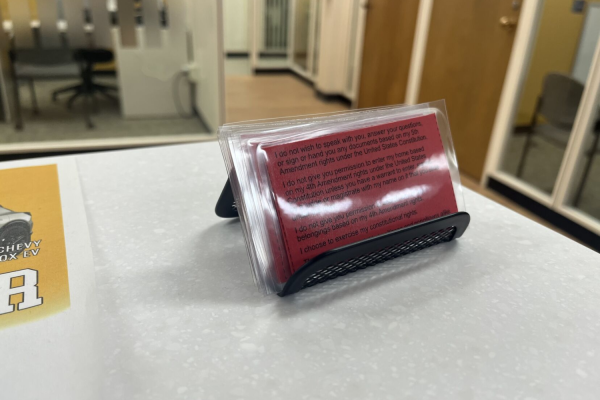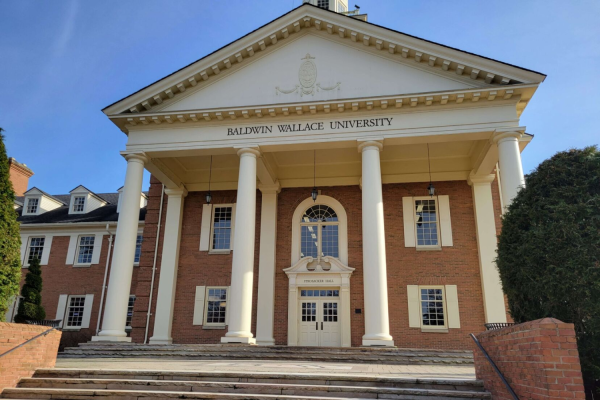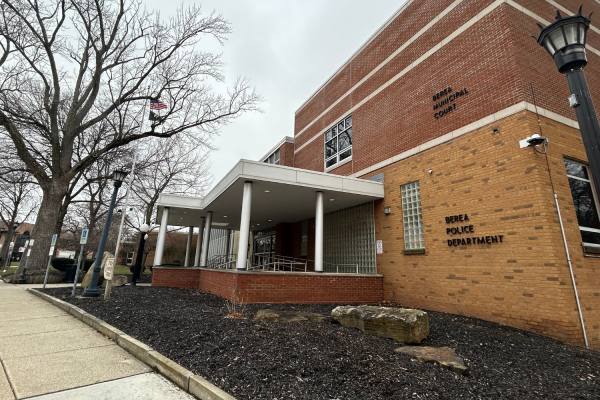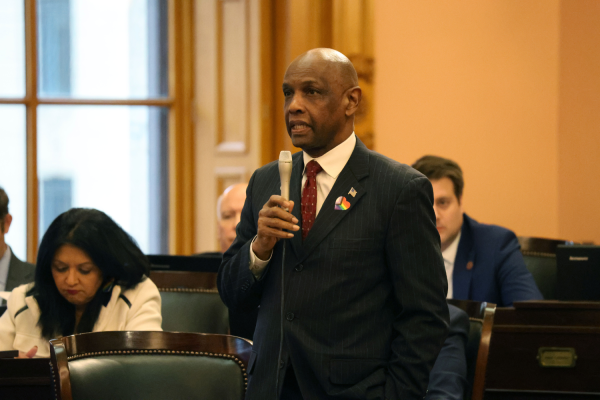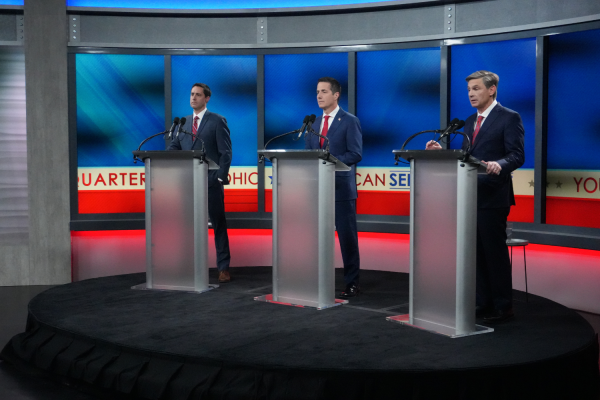Abortion, other controversial issues highlight stark ideological divide between Ohio gubernatorial candidates
Incumbent Governor Mike DeWine, is downplaying his position on abortion rights as Nan Whaley, his challenger in November’s election, looks to mobilize pro-abortion voters.
This election season, Ohioans will make a choice between two candidates who are in many ways ideological opposites – especially concerning hot-button issues like abortion – to serve as their next governor.
Nan Whaley, a Democrat and former Mayor of Dayton, and Republican Governor Mike DeWine are the candidates facing off in November. DeWine has overseen big changes in Ohio’s abortion laws, originally signing the so-called “heartbeat bill,” which bans abortion after a fetal heartbeat is detected, into law in 2019. The law was blocked by an injunction until late June when the Supreme Court overruled Roe v. Wade. (A new temporary restraining order has since temporarily paused enforcement of the law.)
The recent Supreme Court ruling on Dobbs v. Jackson has removed the protection for abortion that Roe v. Wade provided. Leading up to the November midterms, Democrats like Whaley have seized on the opportunity to argue that abortion rights now hinge on which legislators and executives are in power.
“A broader post-Roe shift in the midterm landscape,” Author Hannah Knowles said in a Washington Post article early September, “… has turned what many once anticipated would be a Republican wave into a more competitive fight nine weeks before Election Day.”
Now that the Supreme Court has overruled Roe, the ball is effectively wholly in each state’s court to determine its own laws regarding abortion rights. This means that states like Ohio, which already had restrictive policies under Roe, could seek even more restrictive abortion regulations.
Whaley is now making a concerted effort to mobilize pro-choice voters. She takes a strong stance on abortion rights on her campaign website dedicating a whole page to the issue.
“Now more than ever, Ohio needs a pro-choice, Democratic Governor who will staunchly protect abortion access — especially for people who face greater barriers to access,” Whaley said. “Abortion is on the ballot in 2022.”
Whaley’s website points out that following the recent Supreme Court decision, the choice of governor will be important on the abortion issue.
“The next Governor of Ohio will likely be the last line of defence in protecting abortion rights in our state,” Whaley said.
In contrast, DeWine’s campaign has left his position on abortion more ambiguous. His website, unlike Whaley’s, makes no explicit reference to the abortion debate. DeWine and other state Republicans appear to be winning the abortion debate but seldom talk about it.
Although his campaign website does not mention the issue, DeWine, along with Attorney General David Yost, moved quickly to trigger the abortion ban.
Despite the Dobbs v. Jackson ruling potentially increasing the competitiveness of the race, poll numbers have DeWine solidly ahead of Whaley. According to FiveThirtyEight, as of Sept. 11, DeWine has a 15.7 percent lead on Whaley in the polls. Ohioan respondents prefer DeWine at 52.2 percent, while 36.5 percent prefer Whaley.
The candidate’s division extends to gun policy. Under DeWine, gun laws have become less strict. Civilians over 21 can concealed carry without any permit or training.
Whaley, who was the Mayor during Dayton’s mass shooting in August 2019, criticized Dewine’s inaction on gun-reform despite making a promise to “do something” the night of the incident.
“He gave up without a fight when the politics got too hard,” Whaley said in late May at a vigil for those who died in the Dayton shooting.
The candidates themselves are contrasted in experience. DeWine will finish his first term as Ohio governor in January. DeWine has been in public office since 1976 and has been in a wide variety of government positions, including being a United States senator, and he was once the Ohio Lieutenant Governor.
Whaley was the executive director of the Montgomery County Democratic Party. It was not until 2014 that she became mayor of Dayton, serving until January. She was also a superdelegate in the 2016 Democratic National Convention.
The Exponent is looking for financial contributions to support our staff and our newsroom in producing high-quality, well-reported and accurate journalism. Thank you for taking the time to consider supporting our student journalists.




